
UTBM
UTBM trains rapidly operational engineers, particularly adaptable to technological developments and changes in society. It also offers Masters and Ph.D programs. Its training is based on research activities and technology development.
Created in 1999, the UTBM is a public scientific, cultural and professional institution of higher learning.
Member of the network of universities of technology, it was born from the regrouping of two higher education establishments: the National School of Engineers of Belfort (1962) and the Polytechnic Institute of Sevenans (branch of the UTC established in Sevenans in 1985).

ESTACA
The École Supérieure des Techniques Aéronautiques et de Construction Automobile (ESTACA), located in Saint-Quentin-en-Yvelines (near Paris) and Laval (further to the west of France), trains engineers specializing in transport.
Its mission is to train engineers and conduct applied research for the benefit of all players in the aeronautics, automotive, space and guided transport sectors.
ESTACA prepares for the new challenges of tomorrow: respect for the environment, energy management, growing urbanization. To meet these challenges, the school trains multidisciplinary and multicultural engineers ready to respond to the profound transformation of modes of transport.
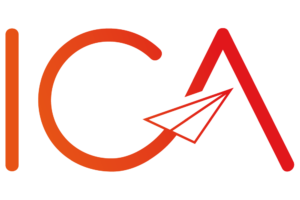
ICA
ICA is a research laboratory that focuses on the study of structures, systems and mechanical processes. Our activity sectors are in the mechanical industries with a particular focus on aerospace, space, transportation and energy. Our work usually focusses on behaviour modelling, instrumentation and the study of the durability of the structures or products considered. A large part of our research focus on composite materials, which play today an important role in structures.
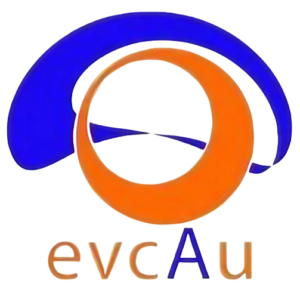
EVCAU
EVCAU (EnVironnements numériques, Cultures Architecturales et Urbaines) is a multidisciplinary research laboratory (Hosting Team n°7540) based at the Ecole nationale supérieure d’architecture Paris-Val de seine. The EVCAU team is composed of 62 members, including 45 permanent teacher-researchers, 7 HDRs, 16 associate researchers, 48 architects, 14 doctoral students and 3 research support staff in management and documentation.
Its work covers the entire field of knowledge of the city and architecture. A transversal vision is carried by an approach in terms of digital humanities.

EC Nantes
Training curious, responsible and open-minded engineers. Centrale Nantes has a dual vocation:
- A vocation to teach, by creating and disseminating advanced scientific and technological knowledge, with programmes open to the diversity of knowledge and with an international outlook.
- A vocation to contribute to economic development. The school aims to support companies in the field of innovation.
Three broad and distinctive areas of theoretical and applicative investigation and training:
- energy transition
- manufacturing
- healthcare
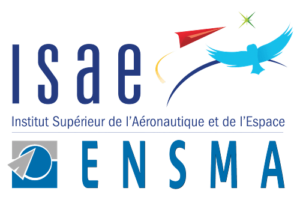
ENSMA
Within the framework of its public service missions, ISAE-ENSMA develops highly connected research and training activities, which are based on numerous academic and industrial partnerships. These activities are based on the following shared vision.
Strongly involved in its territory and region, as a member of the ISAE group, and a bearer of aeronautical and space excellence for the mobility of the future, ISAE-ENSMA responds to industrial and societal challenges by offering high-level scientific and technological skills, to steer complex research and technology projects, to manage teams and organisations, to pass on values, and to give a global vision in a highly connected and rapidly evolving context.
Our students are strongly involved in their education, through innovative projects, they are the next generation of scientists and managers, able to meet the industrial and societal challenges of the future.

FCLAB
FCLAB is a technical and scientific resource centre dedicated to Hydrogen Energy systems with more than 20 years of experience in the field. It is supported by CNRS, the University of Franche-Comté (UFC), the University of Technology of Belfort-Montbéliard (UTBM) and the l’Université Fédérale Bourgogne Franche-Comté (UBFC). It federates the activities of more than 140 researchers and engineers, through our network of partner laboratories (FEMTO-ST Institute, ICB, LEMTA, AMPERE, SATIE, Univ. Gustave Eiffel)

ISAE Supaero
The Institute offers a complete and unique range of high-level scientific training:
- ISAE-SUPAERO engineer training,
- CNAM-ISAE apprenticeship training,
- 1 master international Aerospace Engineering,
- 6 research masters,
- 15 specialized masters,
- 6 doctoral schools,
- continuing education programs.
ISAE-SUPAERO is developing a research policy largely geared towards the future needs of the aerospace or high-tech industries.
This proximity to the industrial world is also characterized by the development of a policy of sponsorship agreements in strategic areas and by the participation among the teaching staff of a large number of professionals who introduce students to the latest technological innovations as well as best industrial practices.
Internationally, the Institute cooperates with the best European universities (Cranfield, TU Delft, KTH Stockholm, ETSIA Madrid, TU Munich, Pisa) and North American universities (MIT, Caltech, Stanford, Berkeley, etc.).

Enac
ENAC, the National School of Civil Aviation, is the largest of the Grandes Ecoles or aeronautical universities in Europe.
ENAC offers training to a wide spectrum of professions: engineers or high-level professionals capable of designing and developing aeronautical systems (aircraft including cockpits and engines, etc.) and more generally those of air transport ( airport, airlines, air traffic control, etc.) as well as airline pilots, air traffic controllers and aeronautical technicians.
ENAC prepares for almost all professions in the fields of aeronautics and air transport. It supports the training needs of all public actors (civil aviation authorities, air traffic control services, etc.) and private actors (aircraft manufacturers, engine manufacturers, equipment manufacturers, airports, airlines, etc.) in these fields in France, in Europe and in the world.
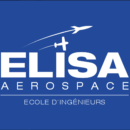
ELISA Aerospace
ELISA Aerospace, school of aeronautics, school of space, school of technologies of the future, aims to be an open door to the world of tomorrow, wants its training to enable its students to know and become aware of the issues and challenges of aeronautics and space. This will lead to their being sought after for their skills and for their personality.
The objective of ELISA Aerospace is to train multidisciplinary engineers skilled in the scientific and technological fields necessary for the design, implementation and maintenance of aeronautical and space systems (mechanical, aerodynamics, propulsion, automatic, electronics, IT, Operational security ).
Emphasis is placed on the development of multi-skills and the ability to adapt to technological developments which are the qualities expected of a systems engineer.
The team relies on recognized higher education professionals in aeronautics and space sciences to carry out its project.
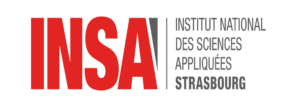
INSA Strasbourg
INSA Strasbourg is a public scientific, cultural and professional establishment (EPSCP). The school, whose origins date back to 1875, joined the INSA Group in 2003.
A large engineering school and architecture school under the supervision of the Ministry of Higher Education, Research and Innovation, its engineering education is accredited by the Commission of engineering titles, that for architecture is accredited by the Cultural, Scientific and Technical Commission of the Ministry of Culture.
INSA Strasbourg welcomes around 2,000 students to its campus on the Esplanade, a stone’s throw from the city center, in the heart of the European capital.
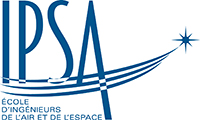
Ipsa
IPSA, an aeronautical and space engineering school, trains enthusiasts in the fields of aeronautics and space, through its 5 year specialist engineer program or its 9 year Bachelor program.
Located at the crossroads of the industrial and academic worlds and with its research laboratories dedicated to aerospace, it places innovation at the heart of its training and also promotes international openness. It is present in 3 regions which have many companies linked directly or indirectly to the world of air and space.
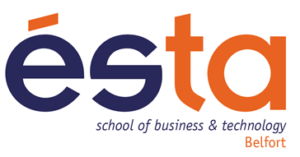
ESTA
ESTA was created over 30 years ago with the aim of training Sales Engineers skilled in selling technical products on international markets, initiated by industrial partners asserting that competent personal to sell their technological products in overseas is missing in France.
Right from the start, ESTA is offering a Sales Engineering cursus, with technical and commercial aspects integrated as from year one. By this, students are being best prepared to succeed in their future challenging job.
More than 1000 ESTA graduates have become the school’s ambassadors by applying their skills to the benefit of their respective companies. ESTA graduates are much sought after in industry, and more than 92% of graduates have a job contract within 6-months after graduating.

